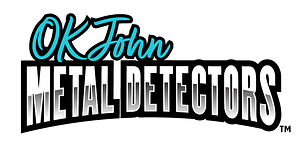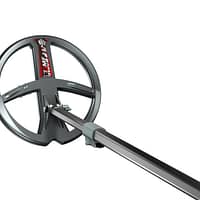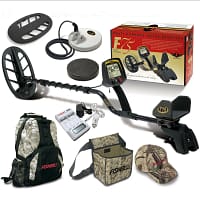Metal Detecting LAWS and other fun facts
Disclaimer:
It is important to stay informed on laws and regulations regarding metal detecting in your area by consulting official sources such as local government authorities, as they may change over time. Additionally, it is essential to obtain permission before metal detecting on private property. Please note that I cannot be held responsible for any legal issues that may arise from not conducting your own research. It is your responsibility to ensure compliance with all laws and regulations.
METAL DETECTING CODE OF ETHICS
Clubs by Provinces
If you’re new to metal detecting and want to explore different areas, joining a local metal detecting club can be a great option. Being a member has many benefits, such as a community of like-minded individuals, companionship during searches and trips to remote locations, the ability to borrow or rent a metal detector from other members, and access to tips and advice from more experienced detectorists. While you can also find tips and recommendations on metal detecting forums, being part of a club can provide a more personal and community-driven experience. For a list of metal detecting and gold prospecting clubs in your area, you can check out Canadian Metal Detecting.
Alberta
British Columbia
- West Coast Treasure Hunter’s Club
- Fraser Valley Treasure Hunters
- Metal Detecting Victoria, B.C.
Manitoba
- Manitoba Metal Detecting Group
- Westman Treasure Hunters
- Keystone Detectorist Club
New Brunswick
Newfoundland and Labrador
- Still looking for one.
Nova Scotia
Ontario
- The Rainbow’s End
- Canadian Treasure Seekers
- Southern Ontario Hunt Information
Prince Edward Island
Quebec
Saskatchewan
What can you find!
Metal detecting in Canada can be very fruitful, you may find such things as:
- aluminum
- coins of all kinds
- copper
- gold
- historical relics
- iron
- lithium
- marbles
- nickel
- old buttons and buckles
- old and modern jewelry
- platinum
- silver
- relics
- toy cars
- zinc
Special Finds
- Marbles
- Arrowheads

🇨🇦 Metal Detecting Rules Across Canada
A province-by-province guide for hobbyists and treasure hunters
Alberta
✅ Allowed without a license for recreational use.
🚫 Avoid protected historical/archaeological sites.
🏞️ Parks and rivers are popular for casual detecting.
🔎 No official maps for detectorists, but metal finds like tools, coins, and tokens are possible.
British Columbia
✅ Metal detecting is legal in areas not restricted by law.
🏖️ Beaches and trails near historic towns are popular spots.
🚫 Provincial/national parks and heritage sites are off-limits.
📜 Always check local bylaws before heading out.
Manitoba
✅ Metal detecting is legal in areas not restricted by law.
🎯 Detecting in private owned parks requires permission and specific site approval.
🚫 Heritage and archaeological sites are completely off-limits — even with a permit.
👮 Fines can be issued for unauthorized detecting.
New Brunswick
✅ Legal, but caution required.
🧭 Detecting is allowed but must respect heritage regulations.
📢 Any significant or historical find must be reported.
🎣 Beaches and less historically sensitive areas are your best bet.
Newfoundland & Labrador
✅ Permitted for non-historical item hunting.
🚫 Removing or disturbing historical resources is illegal and punishable.
🔍 Stick to casual detecting on beaches or recreational properties with permission.
Nova Scotia
⚠️ Mixed permissions.
🧭 Non-intrusive scanning may be permitted on private land with the owner’s consent.
🚫 Digging is not always legally defined, and relic protection laws are strict.
🕳️ Keep your hunts shallow and avoid known historic areas.
Ontario
✅ Generally permitted, with boundaries.
🏞️ Detecting is legal in public areas, but not in national or provincial parks.
🏡 Private property requires landowner permission.
📜 Respect any signage or local bylaws.
🔔 Be aware: Ontario has many sites protected under heritage acts.
Prince Edward Island
✅ Technically allowed.
🚫 Extremely limited due to small size and protected sites.
🧱 Most areas of historical interest are off-limits.
🔍 Regular finds possible but low yield province-wide.
Quebec
✅ Permitted, following basic laws.
🏞️ Beaches and some public lands are open for casual scanning.
🚫 Avoid government property and known archaeological locations.
🔄 Some parks offer metal detecting tours or permissions on request.
Saskatchewan
⚠️ Previously lenient, now more restrictive.
🛑 Public parks and historic locations have tighter rules due to past misuse.
📜 Always check for park-specific permissions.
👁️ Eye local bylaws and avoid any sites with posted restrictions.
Northwest Territories
✅ Allowed, but with limited hobby interest.
🚫 Must not interfere with historic/archaeological areas.
🌲 Most areas are undeveloped or challenging terrain.
🪙 Expect common modern finds rather than buried treasures.
Nunavut
✅ Hobby detecting permitted in some areas.
📜 Permits may be required depending on location.
🌨️ Difficult conditions and preservation laws limit usefulness.
🚫 Historical artifacts remain the property of the territory.
Yukon
✅ Very welcoming to detectorists.
🛤️ Historic trail zones and homestead lands are full of hobby potential.
🚫 Like elsewhere, historical and protected sites are off-limits.
🪙 Great province for those interested in old coins and lost items near towns and rivers.
Quick Legal Reminders for All Detectorists in Canada
-
Private Property: Always get written or verbal permission.
-
Public Parks: Many allow it, but always confirm with city or park staff.
-
Historic Sites & Artifacts (100+ years): These belong to the Crown and should not be removed.
-
Leave No Trace: Fill your holes, clean up trash, and respect natural and cultural areas.
-
Report Major Finds: Significant archaeological or historical items must be reported under provincial laws.
⚠️ Summary Table
| Province/Territory | Metal Detecting Legal? | Notes |
|---|---|---|
| Alberta | ✅ Yes | No license needed; avoid protected sites |
| BC | ✅ Yes | Avoid parks, check bylaws |
| Manitoba | ⚠️ With permissions | Highly regulated; strict heritage laws |
| New Brunswick | ✅ Yes | Report historical finds |
| Newfoundland | ✅ Yes (non-historical) | No heritage removal |
| Nova Scotia | ⚠️ Yes (limited) | Private land w/ consent only |
| Ontario | ✅ Yes | Public OK, parks/private require approval |
| PEI | ✅ Yes | Minimal activity, mostly casual finds |
| Quebec | ✅ Yes | Avoid archaeological zones |
| Saskatchewan | ⚠️ With permissions | Now stricter in public areas |
| Northwest Territories | ✅ Yes | Limited potential; avoid heritage zones |
| Nunavut | ✅ Yes (some permits) | Harsh conditions; some access restricted |
| Yukon | ✅ Yes | Great region; avoid protected areas |
Fun Facts
Declaring finds in the UK
In the United Kingdom, individuals are legally required to report any treasure they find to the local coroner within 14 days of discovering it. The Treasure Act 1996 defines treasure as any object that is at least 300 years old when found and contains at least 10% precious metal. This includes items such as gold or silver coins, medieval or ancient artefacts, and items of historical significance. The local coroner will then investigate the find and determine if it is indeed treasure. If it is, the find will then be offered to museums, with the finder and landowner being entitled to a reward based on the market value of the treasure.
Metal Detecting in France
In France, there are laws and regulations in place that govern the use of metal detectors. According to the French Heritage Code, it is illegal to use a metal detector on public land without obtaining a metal detecting pass, also known as a “permis de détection” from the local authorities. The pass is issued by the departmental archaeologist, who is responsible for the protection and conservation of archaeological heritage in the region. The pass is only granted to individuals who have completed a specific training course on archaeological heritage, and who have passed a test on the regulations and laws that govern metal detecting in France. Additionally, it is prohibited to use metal detectors in certain areas, such as historical sites and archaeological sites, without a specific authorization.
Private Property Digging in Canada
It is important to note that in Canada, entry and metal detecting on private property are only allowed with permission from the landowner. Obtaining written permission is recommended, especially if the landowner is not a relative or friend. If valuable items are expected to be found, the landowner’s consent and agreement on compensation should be obtained. Additionally, it is important to be aware of the complicated laws regarding the ownership of objects found during metal detecting activities. According to most provinces’ legislation, any archaeological sites or objects found on private property belong to the Crown, not the landowner or finder.
(Government wants their piece of the pie)
Ownership of Artifacts
Any artifacts found after proclamation of The Heritage Resources Act in 1986 are the property of the Province of Manitoba. However, the Province provides for custodianship of heritage objects. Artifacts collected on private land remain in the custody of the property owner, although landowners may transfer their rights to other persons, including those who collected the artifacts. Heritage objects recovered on Crown land may remain in the custody of the persons who found them. It the end if the government wants the item you will need to hand it over. You are simple the caretaker of that object.
Where Can You Go Metal Detecting
- Historical sites: Parks, battlefields, and other historical locations can be great places to metal detect, as they often have artifacts dating back to the time period in question, but Make sure to get permission.
- Beaches: Beaches are another great place to metal detect, as they are often frequented by people and have a lot of lost items.
- Parks and recreational areas: Parks and recreational areas can also be good places to metal detect, as they are often used by people for picnics, sports, and other activities.
- Campgrounds: Campgrounds can be a great place to metal detect, as they are often used by people for camping and other outdoor activities.
- Old homes and buildings: Old homes and buildings can be great places to metal detect, as they often have items left behind from previous occupants.
- Ghost towns: Ghost towns can be great places to metal detect, as they often have a lot of abandoned buildings and structures that can contain interesting artifacts.
Other places you might find:
- abandoned mines
- abandoned buildings, old structures
- areas around old churches (cemeteries are prohibited!)
- backyards and gardens
- fields
- fishing areas
- flea market sites
- gold fields
- lakes, rivers, and creeks
- metal detecting the beach
- playgrounds
- old towns
- school areas
- shipwrecks
- woods












